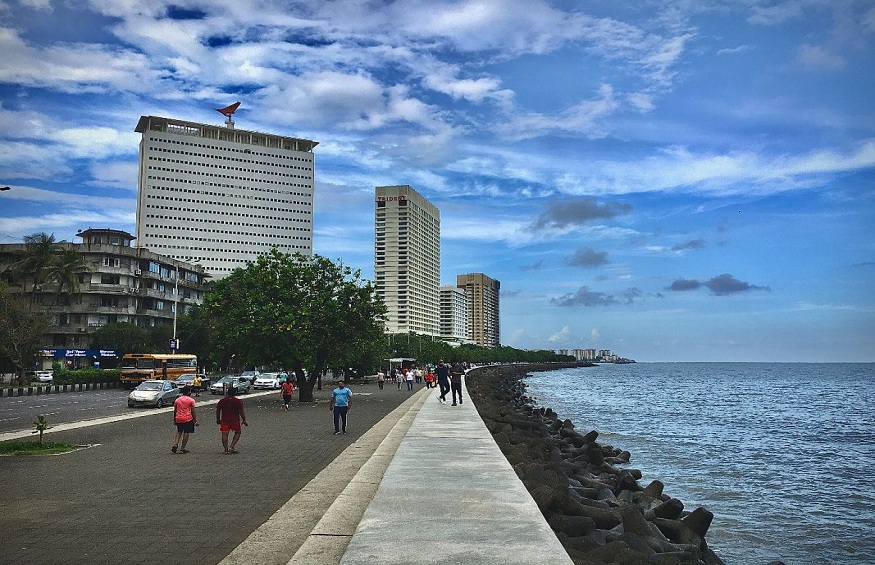Even if many persist in calling it Bombay, the capital of Maharashtra has been called Mumbai since 1995. To visit Mumbai, the commercial, industrial and financial capital of India, is also to discover the most important factory of beautiful romances and passionate melodramas: it is here, therefore, in the major Bollywood studios, that the incomparable Indian cinema materializes.
The country of Bollywood is also a major tourist destination, leading for international airports, moreover millions of tourists enter India via Mumbai each year. Apart from infrastructure, the city has architectural marvels, sights, tourism activities and shopping destinations.
Traveling to Mumbai will be a unique and memorable experience whatever your tastes and aspirations. This city never sleeps. The city’s natural harbor was used by the British in the past and today it has become a place of entertainment, tourism, and development. Mumbai was also an important stronghold in India’s struggle for independence. Thanks to the natural harbor, the region was already an important place in antiquity. This explains the presence of ancient ruins, historical sites and palaces in this coastal area.
Visit Mumbai
Built during the British Raj, primarily to commemorate the visit of Their Majesties King George V and Queen Mary in 1911, the Gateway of India is also aptly called the Taj Mahal of Mumbai. This 16-metre arched monument was renovated to serve as a landing place for British governors and other important personalities.
India Gate built in Indo-Saracenic style is one of the most popular attractions in Mumbai and India; so don’t be surprised if you find a myriad of tourists, vendors and photographers prowling around this monument.
The popular music and dance festival Elephanta is celebrated here. The old festival venue was in the Elephanta Caves, but as the number of visitors increased, it had to be moved to a larger venue.
Colaba Causeway market
Colaba Causeway is a market with countless cramped stalls scattered all over the place, which stretches over a seemingly endless promenade. For shopaholics, this is the ideal place which conceals many hidden treasures and where resisting the passion to buy can be difficult. In addition, even with a small budget, you will find your account
As you approach the Colaba Causeway entrance, you’ll be greeted by a myriad of bags, exotic shawls, fun household items, T-shirts emblazoned with mottos and slogans, clothing and accessories. To unearth your favorite diamond among the rough diamonds, keep digging deeper, you will be rewarded for your fervor. Negotiation is also an essential part of the process: never accept the first three prices that the seller offers you.
The Elephanta Caves
The Elephanta Caves, located on Elephanta Island in the port of Mumbai, are registered as a UNESCO World Heritage Site, apart from being one of the major tourist spots in Mumbai. They are home to innumerable cave temples and statues carved out of the rock dating back to around the 7th century. The well-known statue of Shiva with its 3 faces figures prominently there.
There are two groups of caves. One includes five Hindu caves and the other two Buddhist caves. Hindu caves are dedicated to Lord Shiva. These caves date back to the 5th century. They are composed of solid basalt rock.
The most important cave of all is Cave 1, which is 39m long from front to back. This cave resembles that of Dumar Lena in Ellora. Its entrance is adorned by Sadashiva, a 7m tall sculptural masterpiece, which embodies three faces of Lord Shiva, namely the creator, the preserver and the destroyer.
Awarded the UNESCO Asia-Pacific Heritage Prize in 2010, the Chhatrapati Shivaji Maharaj Vastu Sangrahalaya is an art and history museum. It is one of the main attractions in Mumbai and a must visit place for history buffs and people who want to travel to distant eras.
Previously, the museum was known as the Prince of Wales Museum of Western India and was later renamed by Shivaji, the founder of the Maratha Empire. The museum is the guarantor of the culture, the quintessence and the spirit of the country. The main aim of the museum is to educate travelers about the rich culture and heritage of India.

